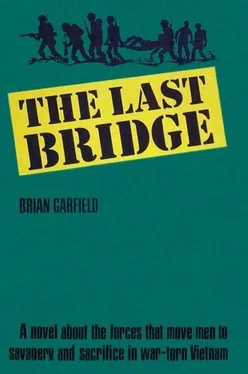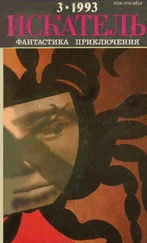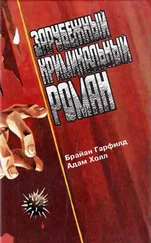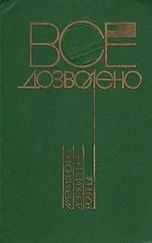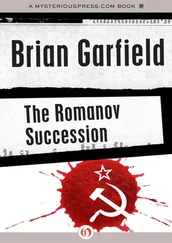There was no way of reckoning time. He stood by the door until his knees began to ache. With his nose close to the open slot, breathing was more tolerable. He looked back, and he could faintly see Lieutenant Chinh’s face. The handsome detail of the Vietnamese officer’s features seemed reposed, resigned, closed up. Kreizler thought, You’re a good man, Lieutenant, and it’s a Goddamn crying shame.
A slim officer stepped out on the porch of the headquarters building and stood under the lights in a mandarin-style, cream-hued uniform with the collar standing up around his neck. He slapped a swagger stick into his open palm, looked over his shoulder and spoke a few words. A quartet of soldiers came out of the building and followed the officer when he stepped down off the porch. They came toward the guardhouse. Eddie Kreizler let his hand drop away from the door; he glanced at Lieutenant Chinh and nodded. He thought he saw a break in Chinh’s expression. He looked through the slot again: the officer was talking to the gate sentries, and after a moment one of the sentries saluted and unlocked the gate. Kreizler felt weight beside him, and when he turned his head he saw Lieutenant Chinh standing at his shoulder. “Go back and sit down. Stay away from the door.”
“I no use back there,” said the Lieutenant.
“You know what I’m going to do.”
“Yes.”
“All right,” said Kreizler.
The sentry walked from the gate to the jail door. Kreizler took a pace back. He heard the officer speak, and then the rattle of a key in the door. The door squeaked, swinging outward. Kreizler braced his feet to jump, but then a swift figure lunged past him, shouldering the door away, and as Kreizler launched himself through the opening he saw Lieutenant Chinh flail into the four soldiers like an Indian running a gantlet. Chinh bellowed, and rifles cracked. Kreizler plunged after him. He swung his fist at the sentry’s startled face. Another gun went off; he saw Lieutenant Chinh lose his footing and slip down. Someone uttered a sharp command. Kreizler turned to attack the officer. He had a brief look at a cool, narrow face, drily smiling at him, and then one of his arms was jerked up painfully behind his back and there was a gun muzzle against his belly. He strained in taut struggle, shouting obscenities in Vietnamese, but the soldier did not shoot him; his arm was pulled up toward his shoulder blade, and he felt it crackle with hot pain. The officer’s amused face moved close, and a gloved hand slapped him twice across the cheeks. “Stop that, Captain. You cannot force us to kill you.”
The rifle was taken away from his stomach. He felt his arm close to breaking; he felt faint. The officer said something in a nasal voice, and Kreizler quit struggling.
Someone pushed him roughly. He stumbled forward. His toe rammed into a soft object, and he saw Lieutenant Chinh before him in the mud. Chinh was dead, shot several times. The North Vietnamese officer spoke behind him: “Your friend was fortunate, don’t you agree, Captain?”
They prodded him across the compound and into a small room within the headquarters building. He heard the officer’s British accent: “Make yourself comfortable, Captain.” Then the officer spoke in Vietnamese: “Stay here.” He was speaking to the soldiers. When Kreizler turned around, he was alone in the room with the officer.
There was a low hard cot, a chair, a ceiling light. The room had no windows. Kreizler said, “You left the door open.”
“Did I?”
“Go back and close it — from the other side.”
“Do not be flip with me, Captain.”
Kreizler sat down on the straight-back chair and fixed a bland stare on the officer. The three silver buttons on the officer’s uniform indicated that he was a colonel. He said, “Stand up, please.”
“Why?”
The Colonel’s face was pale, ascetic. He flashed his swagger stick against Kreizler’s face and Kreizler, not expecting it, could not avoid the blow. It crushed his nose with a searing flash of pain.
He heard the Colonel say, “Stand up, please.”
He got to his feet and stood unsteadily. The Colonel’s voice reached him: “I am unaccustomed to repeating myself, Captain. I trust you will not make it necessary again.”
Kreizler’s vision cleared. He lifted a hand to his face and took it away. There was a little blood on his palm.
The Colonel said, “Sophocles observed that there is one thing worse than dying, Captain. Do you know what that is?”
“I’m a little rusty on my Greek,” Kreizler said. His voice sounded as though he had a bad cold. He breathed through his mouth. His nose throbbed and pulsed.
“The thing worse than dying,” the Colonel murmured. “It’s wanting to die, Captain — wanting to die and not being able to.”
Chapter Twenty-one
0940 Hours
“That’s it,” said David Tyreen. He reached around behind him and slapped the tarpaulin. Saville poked his head out.
The truck crawled up a curved incline, bending back away from the Sang Chu gorge. The great cloven rock of a mountain stood high above them, two upraised monoliths like immense wrecks on a forgotten field of battle. The twin gray ridges curved in toward each other like clasped hands; they seemed almost to touch at the top.
Through a thin pattern of branches Tyreen made out the fragile ribbon of the railroad embankment, a parapet lancing upward along the inner side of split rock thighs. The single delicate track curled up the mountainside at a steep grade, perhaps twenty degrees of climb. It threaded in and out of timber patches and shot across rock slopes, supported on brittle cantilevered foundations, a breathtaking piece of engineering; it climbed gingerly onto the face of the western slope, poised itself a thousand feet above the white-water rush of the river’s cascades, and soared boldly across a slender arc of steel to the face of the eastern cliff; there it made a small, hesitant bend before it plunged out of sight into the dark mouth of a tunnel.
At the western pier of the bridge stood a tiny plateau of rock, supporting a switch and a stub of a siding, and a fortified cluster of structures half-visible where they loomed above the brink of the gorge. Above them the peak soared upward, curving in to meet its mate across a narrow band of cloud. The snouts of mountain howitzers reared around the bridge piers. Sentries moved slowly back and forth across the bridge, pausing at intervals to sweep the country with field glasses. An armored half-track waited at the western end, the helmeted figure of its observer just visible on his perch. The district was overseen by a cement-block command post hanging on the upper cliff as if suspended from a wall peg. Antiaircraft guns bristled along the crest of the mountain higher up; there was a circling radar scanner at the tip. And descending the line of the silver tracks was a regular spotting of blockhouses guarding the roadbed.
The bridge across the Sang Chu gorge was an arch of wrought iron. It appeared to be less than three hundred feet in length. Cement-block piers at either end supported guard and observation towers; the weight of the bridge hung from twin parallel arches that had their anchors in the block piers well below the roadbed. From the anchors the arches curved out, intersecting the roadbed from underneath and then rising above it to arch over the center of the bridge. The truss was reinforced by zigzag lacings of iron.
It reminded Tyreen of the bridge across Sydney Harbour in Australia: a bulky cross-hatching of metal, heavy but somehow delicate, imposing but fragile.
He had time to see the gorge, the railroad, the bridge, the sentries, and the guns; and then the road took the truck up a steep tilt of earth that blocked it all from view. They climbed north, circling away from the river, slowing to a gear-meshing crawl on the high pitch of the road. Tyreen swung out on the running board and crawled through under the tarpaulin into the bed of the truck. He said to Theodore Saville, “Did you get a good look at it?”
Читать дальше
